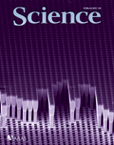导读:情场失意或许会让部分男性借酒浇愁,不过这不是人类的“专利”。美国研究人员发现,被异性拒绝的雄性果蝇也倾向于更多摄取含酒精的食物。

美国加利福尼亚大学旧金山分校的研究人员在新一期美国学术期刊《科学》上报告说,他们把雄性果蝇分别与不同种类的雌性果蝇放在一个容器里。雌果蝇有的乐意寻找伴侣,有的则拒绝配对。等雄果蝇如愿以偿或遭受挫败之后,研究人员把普通食物和含酒精的食物送到雄果蝇面前,观察它们的偏好以研究果蝇的求偶行为和酒精摄取之间是否存在关联。
研究人员发现,被拒绝的雄果蝇明显比求偶成功的同伴摄入更多的酒精。此外,即使雄果蝇连续数日求偶失败,可一旦它们配对成功,就不会再偏爱含酒精的食物。
研究人员随后分析雄果蝇的大脑,试图找到它们情场失意后借酒浇愁的原因。研究人员发现,这种行为特点源于一种神经传递物质——神经肽F。当雄果蝇被拒绝后,其体内这种物质的表达量会立刻下降,而求偶成功能增加其表达量。当研究人员用基因技术降低已配对雄果蝇体内的神经肽F表达量后,它们也会像那些求偶失败的“兄弟”一样开始要酒。
研究人员认为,雄果蝇求爱失败会导致神经肽F不足的状态持续一段时间,它们需要借助酒精给大脑带来某种满足感。
人体内也有类似的物质——神经肽Y,这种物质与人酗酒有关。因此,这项研究有可能帮助人们探究酒精依赖症的发病机理并寻找新的治疗方法。

Sexual Deprivation Increases Ethanol Intake in Drosophila
G. Shohat-Ophir K. R. Kaun, R. Azanchi, U. Heberlein
The brain’s reward systems reinforce behaviors required for species survival, including sex, food consumption, and social interaction. Drugs of abuse co-opt these neural pathways, which can lead to addiction. Here, we used Drosophila melanogaster to investigate the relationship between natural and drug rewards. In males, mating increased, whereas sexual deprivation reduced, neuropeptide F (NPF) levels. Activation or inhibition of the NPF system in turn reduced or enhanced ethanol preference. These results thus link sexual experience, NPF system activity, and ethanol consumption. Artificial activation of NPF neurons was in itself rewarding and precluded the ability of ethanol to act as a reward. We propose that activity of the NPF–NPF receptor axis represents the state of the fly reward system and modifies behavior accordingly.
文献链接:https://www.sciencemag.org/content/335/6074/1351.abstract








